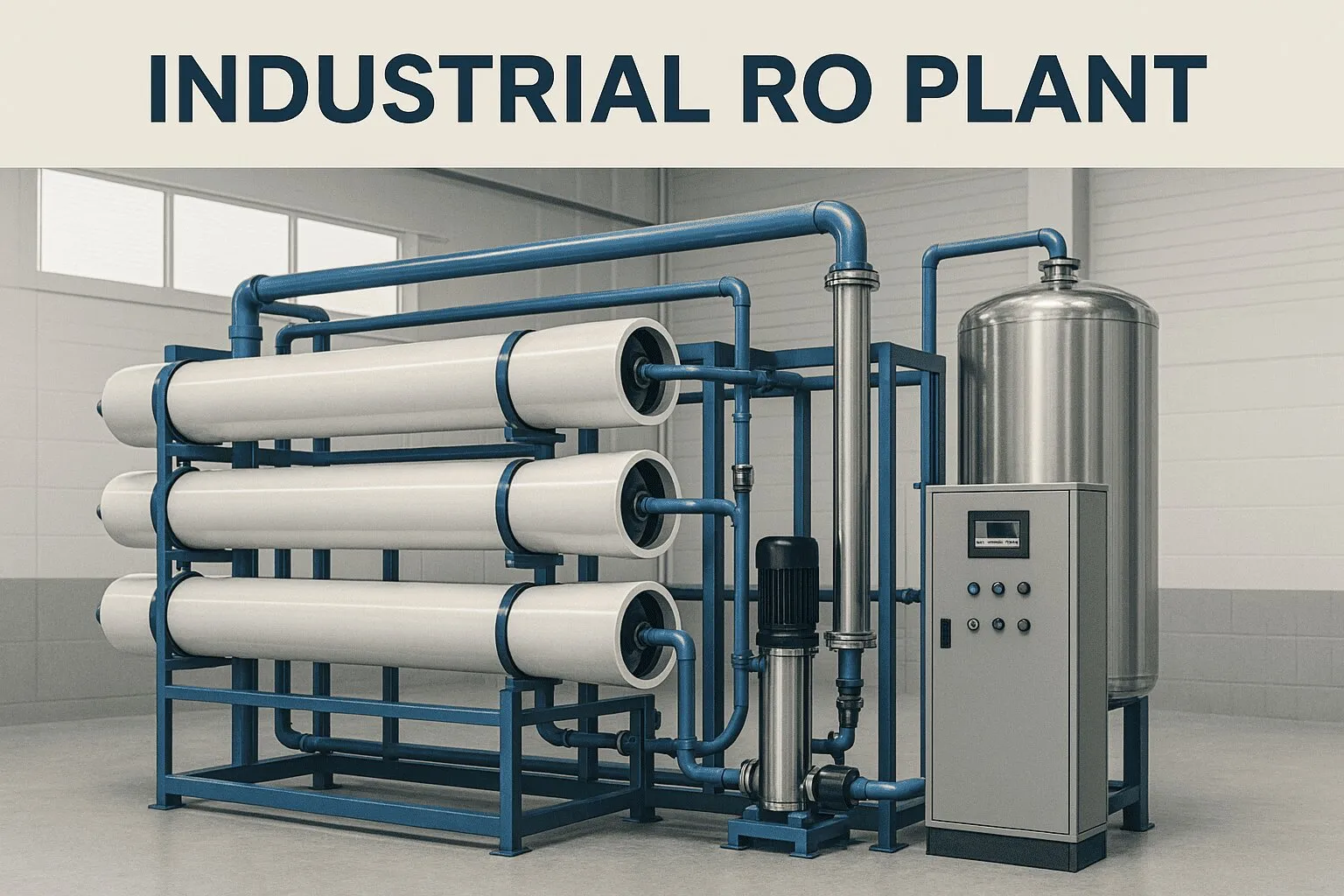Introduction
Water quality and availability are essential for industrial operations. Factories often face unique challenges, such as varying water demand, complex contaminants, and limited space. Standard reverse osmosis (RO) systems provide a one-size-fits-all solution, but they often do not meet specific needs. A customized RO plant is designed to solve these unique challenges, ensuring better performance, cost savings, and sustainability. This article explains how tailored solutions outperform generic systems.
👉 Explore Our Industrial RO Plants
Why Standard RO Systems Fail Industrial Needs
Fixed Capacity, Variable Demand
Standard systems have inflexible output. They are built for average flow rates, which can lead to inefficiencies. During peak demand, a system may struggle to provide enough water. Conversely, during low production times, the system may waste resources.
For example, a factory needing 10,000 liters per day may overwork an 8,000-liter system or waste resources with a 15,000-liter unit.
Ineffective Contaminant Removal
Standard systems often lack the ability to target industry-specific pollutants. For instance, they may not effectively remove heavy metals in textiles or pathogens in food processing.
The consequences include poor water quality, frequent membrane fouling, and increased downtime.
Higher Operational Costs
Mismatched systems waste energy and increase operational costs. Poorly adapted systems need frequent repairs and part replacements, leading to higher long-term expenses.
Space Constraints
Pre-built systems may not fit well with existing factory layouts. This misalignment can drive up installation costs.
The Problem-Solving Edge of Custom RO Plants
Precision Engineering for Water Quality
Custom RO plants use specialized pretreatment methods to target specific contaminants. For example, activated carbon can remove chlorine in food processing. Anti-scalants can treat hard water in textile manufacturing.
Pharmaceutical plants achieve ultra-pure water through multi-stage filtration. Automotive factories remove heavy metals with specialized membranes.
Scalability for Dynamic Needs
Custom plants feature modular designs that allow you to increase capacity as production grows. This flexibility helps you adjust output based on seasonal demands without costly overhauls.
Energy Efficiency
High-efficiency pumps and variable frequency drives (VFDs) help reduce power consumption by up to 25%. Low-energy membranes also contribute to energy savings.
Space Optimization
Custom systems are designed to fit into limited spaces, reducing the need for expensive retrofitting.
Industries That Benefit Most from Custom RO Solutions
- Pharmaceuticals: Require ultra-pure water for sterile manufacturing.
- Food & Beverage: Need to remove microbial and chemical contaminants for compliance.
- Textiles: Must treat high-TDS wastewater to avoid dyeing defects.
- Power Generation: Purify boiler feedwater to prevent scaling.
- Automotive: Filter heavy metals from process water.
Key Features of an Effective Custom RO System
- Advanced Pretreatment: Tailored to eliminate industry-specific impurities.
- Automated Monitoring: IoT-enabled sensors provide real-time performance tracking.
- Durable Materials: Use corrosion-resistant components like FRP vessels and stainless steel for longevity.
- Compliance: Meet ISO and industry-specific regulatory standards.
Assessing Your Need for a Custom RO Plant
Consider these questions to decide if a customized solution fits your facility:
- Does your water source have unique contaminants like high TDS or heavy metals?
- Are you facing frequent membrane replacements or system downtime?
- Do space constraints limit your options for standard systems?
- Is your water demand variable or expected to grow?
Conclusion
Standard RO systems offer simplicity but often fall short of providing the efficiency and adaptability needed for industrial applications. A custom RO plant meets your facility’s unique challenges, ensuring reliable water quality and reduced operational costs. By choosing tailored solutions, industries can achieve sustainable water management while focusing on core operations without compromise.



